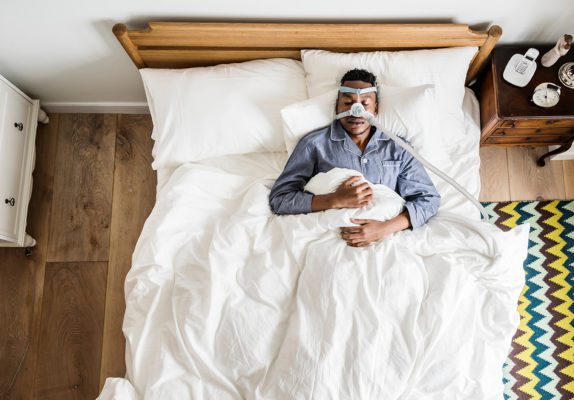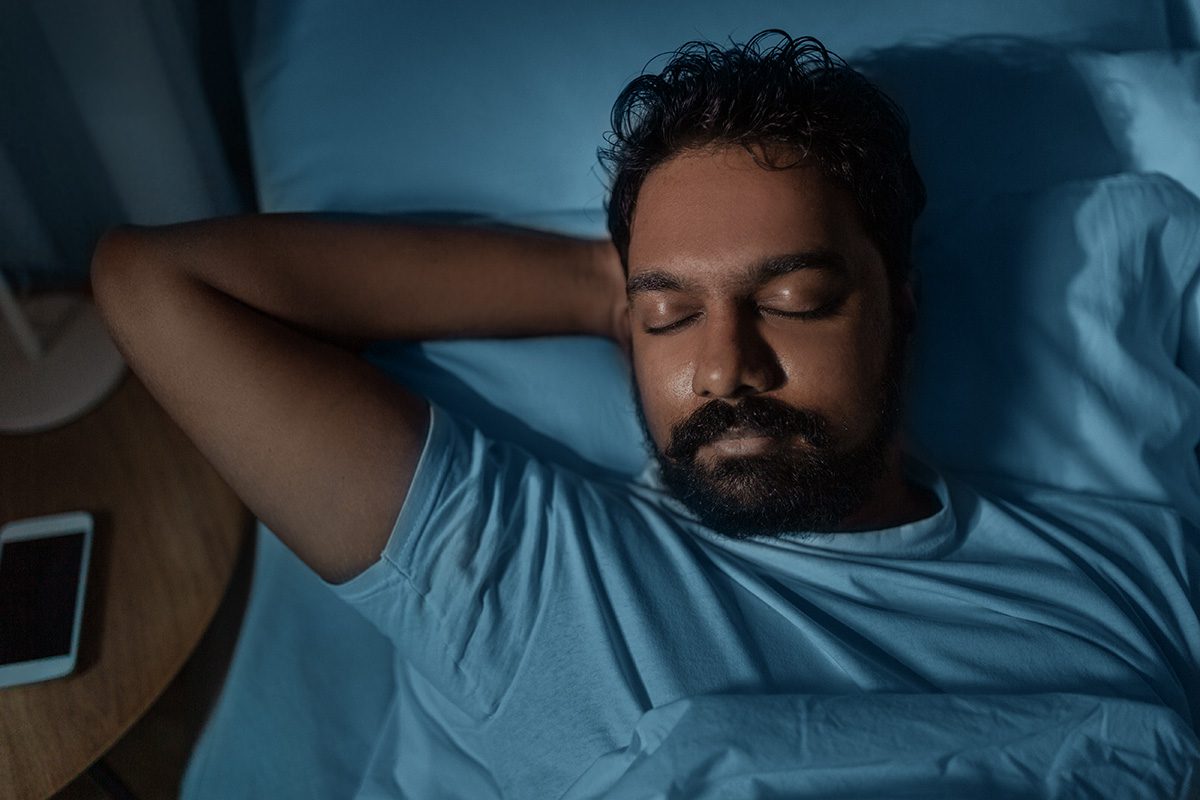SAME DAY APPOINTMENTS AVAILABLE NOW! CALL (337) 237-0650
Sleep Apnea
Sleep apnea is a sleep disorder that is described by abnormal pauses in breathing or instances of abnormally low breathing, during sleep. Each pause in breathing is called an apnea. It can last anywhere from a few seconds to minutes. An apnea can also occur 5 to 30 times or more an hour. Likewise, each abnormally low breathing event is called a hypopnea.
Diagnosis
Sleep apnea is diagnosed with an overnight test called a polysomnogram, also called a sleep study. Sleep studies are performed from the comfort of your own home and can be used to find out how often you stop breathing or have too little air flowing into your lungs during sleep. They also can determine how much oxygen you have in your blood during sleep. Clinically significant levels of sleep apnea are defined as six or more episodes per hour of any type of apnea.

Types of Sleep Apnea
Obstructive sleep apnea (OSA) is the most common category of sleep-disordered breathing. The muscle tones of the body usually relax during sleep, and the throat is composed of collapsible walls of soft tissue which can obstruct breathing during sleep. Chronic severe obstructive sleep apnea requires treatment to prevent low blood oxygen, sleep deprivation, and cor pulmonale (a severe form of congestive heart failure). The people at high risk for OSA are obese, elderly, smokers, diabetics, and men.
In central sleep apnea, also called Cheyne-Stokes respiration, the brain’s respiratory control centers are imbalanced during sleep. The basic neurological controls for breathing rate break down and fail to give the signal to inhale, causing the individual to miss one or more cycles of breathing. The exact effects of the condition will depend on how severe the apnea is and on the individual characteristics of the person having the apnea.
Many people with sleep apnea have a combination of both obstructive and central sleep apnea. When obstructive sleep apnea syndrome is severe and longstanding, episodes of central apnea sometimes develop. Patients with complex sleep apnea display OSA, but upon application of positive airway pressure the patient displays persistent central sleep apnea.
Treatment Options
Treatment for sleep apnea is based on its severity:
- For mild cases, lifestyle changes such as losing weight, sleeping on your side, and avoiding alcohol and sleeping pills can help alleviate symptoms.
- For moderate to severe cases, the most common treatment is the use of a continuous positive airway pressure (CPAP) device. It generates the required air pressure to keep the patient’s airway open during sleep.
If the non-surgical options have failed, surgical treatments are available to alter the airway. The goal of most surgeries for breathing problems is to widen the airway. This is done by taking out or shrinking excess tissue where the mouth meets the throat. Nasal and jaw surgery can help correct nose or jaw problems that contribute to snoring and apnea.
- INSPIRE®
A new, FDA-approved obstructive sleep apnea treatment. The device is surgically implanted during an outpatient procedure and is designed to be turned on and off as you need it. A small remote allows the patient to turn the device on before bed, which opens the patient’s airway to eliminate apnea and promote natural, restful sleep.
- UPPP (Uvulopalatopharyngoplasty)
This is the most common procedure for sleep apnea. It trims the soft palate and uvula while removing the tonsils and other tissue. It is a major surgery performed in a hospital, but most patients can go home within 24 hours.
Snoring
Snoring is the vibration of respiratory structures and the resulting sound, due to obstructed air movement during breathing while sleeping. The structures that are usually involved are the uvula and soft palate.
Diagnosis
observes the person sleeping. Besides the noise of snoring, more complex conditions such as sleep apnea can be consistent with the symptom of snoring. Patients are also able to assess their own conditions to determine the likelihood of these problems based on their sleeping difficulties.
Treatment Options
Almost all treatments for snoring revolve around clearing the blockage in the breathing passage. You may be able to treat snoring by simply making changes in your lifestyle and in the way you sleep.
- Losing weight
- Quitting smoking
- Sleeping on your side rather than your back
- Limiting the amount of alcohol and sedatives before bed
- Using nasal strips which can widen the nostrils and improve airflow
- Using prescription nasal sprays for reducing swelling
If snoring continues or gets worse, you may need to be tested to see if you have developed upper airway resistance syndrome or sleep apnea. And finally, in extreme cases, surgeries can be performed.
What to Expect on Your First Visit
Our resource center provides support to our patients and offers helpful information to make your experience as pleasant as possible. We have a number of patient information forms available for download, as well as pre- and post-operative surgery instructions, insurance providers and a list of frequently asked questions. Can’t find what you’re looking for? Give us a call and we’ll help you out.

TESTIMONIALS
The team at Acadian ENT & Facial Plastic Surgery Center made my visit a very positive, informative & pleasant experience! The entire staff were welcoming & professional. My fear was taken from me by the knowledgeable information given me by the medical staff. I would highly recommend Acadian Ear, Nose, Throat & Facial Plastic Surgery Center to anyone in need of this type of medical care!
Every time I have an appointment here, they are Friendly, Professional, and go beyond trying to make you feel comfortable. But best of all they are absolutely the BEST!!!
All the doctors are very informative and caring. The staff is amazing as well! They make sure you understand everything, and they explain it in ways you can understand. They are very passionate at everything they do!
The office facility is always bright and comfortable. The nurses, staff, practitioners, and doctors are very knowledgeable and courteous when explaining my health issues and insurance coverages. Great office of professionals.

Schedule an Appointment
*REQUIRED FIELDS
"*" indicates required fields


